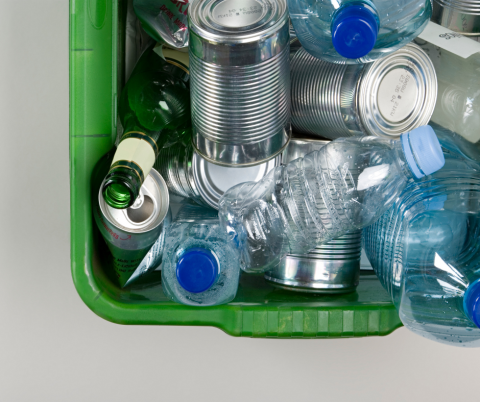


NORTH STORMONT, Ontario – The province is shifting the responsibility for the collection of recycled materials to producers instead of municipalities, thanks to Ontario’s Individual Producer Responsibility (IPR) Plan. The change is effective in SDG on Jan 1, 2025.
This does not mean that Blue Box programming will immediately cease on that date. In fact, the collection and processing of recycled materials is likely to continue – but municipalities will no longer provide the service.
The IPR changes are being made to create a more efficient and effective recycling system, incentivize producers to use more sustainable packaging and reduce the burden on municipalities to collect and dispose of these recyclables.
Under the IPR Plan, producers will be fully responsible for the management and cost of the residential Blue Box program, including the collection, processing, and marketing of recyclable materials. This is a significant shift from the current system, where municipalities are responsible for most of these tasks.
As part of this change, municipalities have to decide whether they want to continue to provide blue-box services through a competitive process or give up the responsibility of collection and processing altogether. Following the Township of North Dundas Council meeting on May 16, every municipality in SDG Counties has confirmed that they will ‘opt-out’ and allow private industry to assume this important roll.
“The decision by local municipalities to ‘opt-out’ of the Blue Box program was made after careful consideration of the added responsibility, current costs, challenges, increased risk and the need to support a more sustainable and cost-effective approach to waste management within our region,” said SDG Counties Warden Tony Fraser.
The transition to Individual Producer Responsibility (IPR) will take place over the next three years, with the goal of having producers fully responsible for the program by Jan. 1, 2026. During the transition period, municipalities will continue to operate the Blue Box program, and producers will pay a fee to help cover the costs. Had local municipalities decided to ‘opt-in’ beyond the transition date, they would be providing collection services through a service agreement with a ‘Producer Responsibility Organization.’
“The Change to IPR is a welcome one, that will encourage a more sustainable and uniform recycling program in Ontario,” said Sarah McDonald, general manager of infrastructure at the Township of South Glengarry. McDonald is also chair of SDG Regional Waste Management Working Group. “Local municipalities within SDG are committed to working with producers and other stakeholders to ensure a smooth and successful transition to IPR.”
During the transition period, the municipalities will continue to provide information and support to residents on recycling and waste reduction initiatives.
Information about the legislation and change to producer responsibility can be found at:
www.ontario.ca/page/producer-responsibility-ontarios-waste-diversion-programsa.